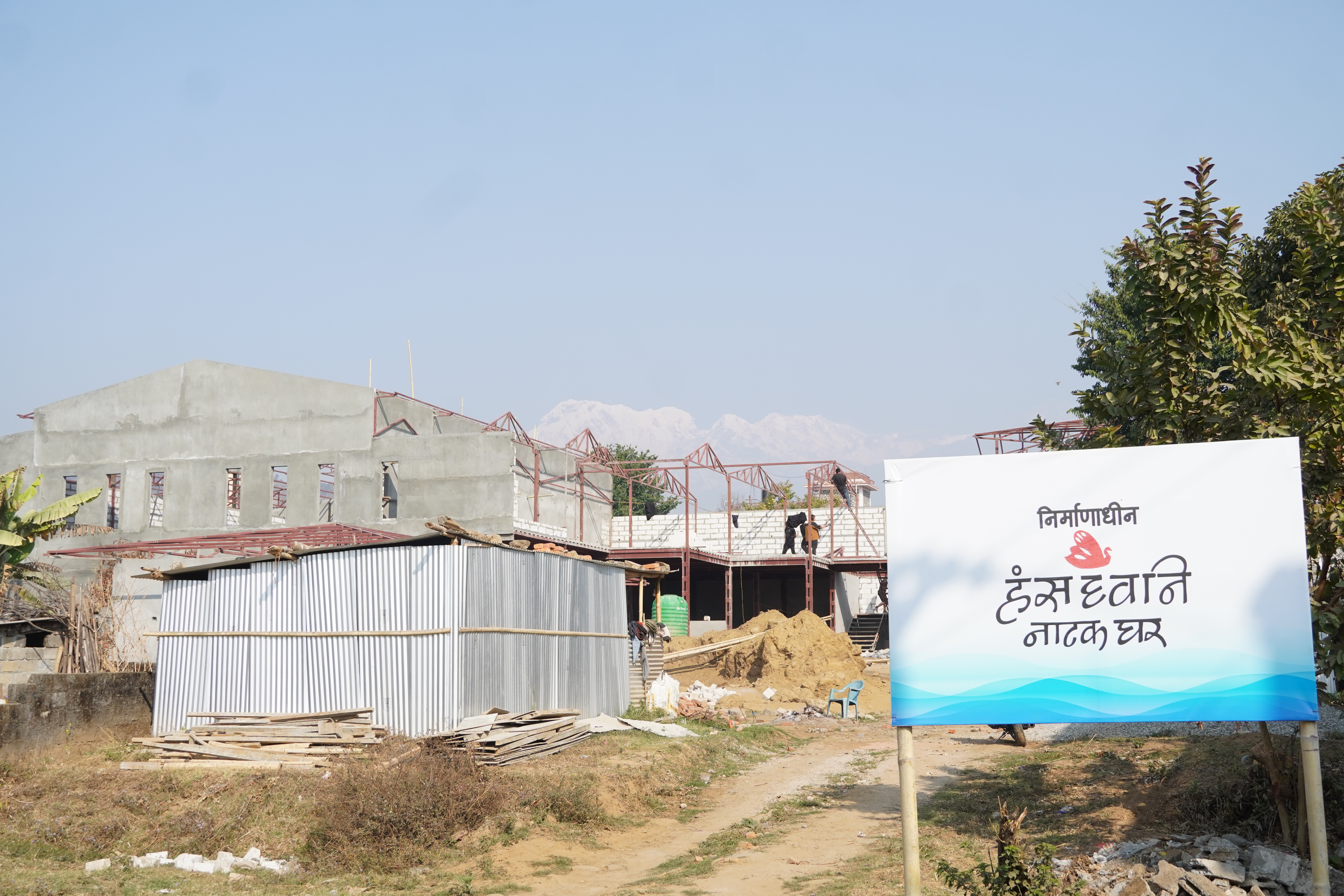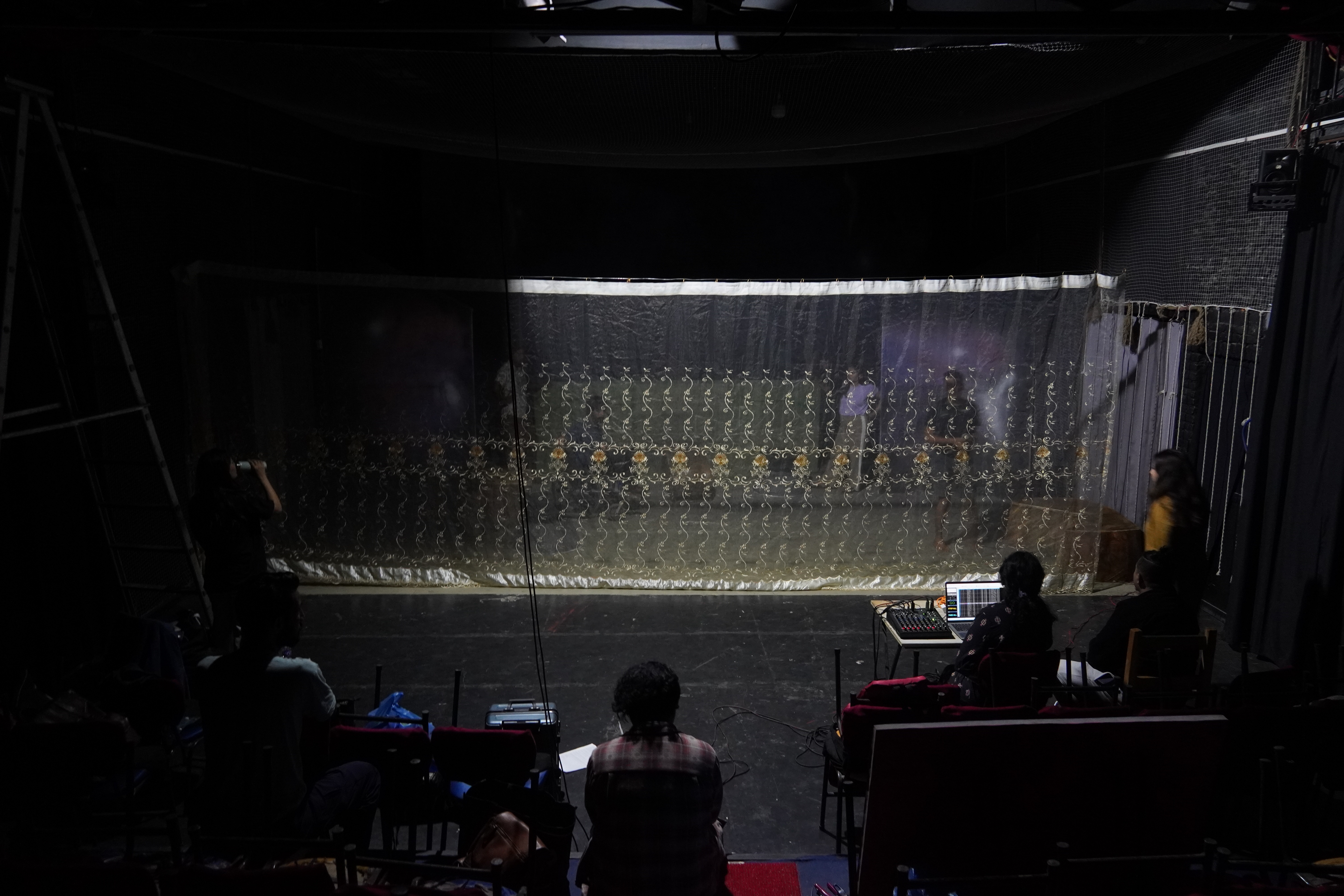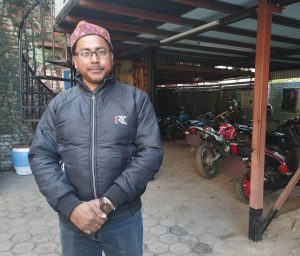
Kedar Shrestha wants to introduce himself as a theatre actor. But he frequently works in films and music videos. Not only that, Shrestha regularly teaches school kids.
“But theatre is my primary profession. I do other jobs just because I want to make money that I can invest in theatre in Nepal,” Shrestha clarifies.
Hence it means he does not earn from the sector but it expects his investment. Does that investment return in profits–in monetary terms?
“For now, no,” Shrestha concedes.
For most people, profession means the job that you work in for livelihood. If you go by that definition, you rarely find anyone who considers theatre in Nepal as a profession. Shrestha says, as an industry, theatre in Nepal is running with the support of a limited audience and organisation, and it is hard to generate income entirely depending on the sector.
Other stakeholders agree.
Theatre in Nepal: A bittersweet journey

Research shows that the theatre in Nepal has been a part of the country’s culture since medieval times. Satya Mohan Joshi and other historians state that the Lichhavis may have introduced and cultivated the tradition of performance, encompassing dance, drama, and music.
Since then, the theatre in Nepal has witnessed changes galore.
Of late the theatre scene is thriving in Nepal, especially in Kathmandu. New plays are being staged one after another. With the new plays, new actors are also being introduced. International theatre festivals are regularly organised. According to veteran playwright Abhi Subedi, at least seven theatre houses in Kathmandu are functional and they have been able to attract audiences regularly.
No doubt, theatre in Nepal is thriving, but actors say adopting theatre as a career is still a matter of concern for them.
There are two clearly noticeable groups of artists in Nepal’s theatre scene. One group is stuck in the sector for long while another group uses the stage to shift to the more lucrative film industry, music videos and other commercial projects.
Sandeep Shrestha, a theatre practitioner for the last ten years, says theatre in Nepal has not been a profession for a lot of actors. “The theatres are still unable to promote their work on a large scale, due to which there is less footfall and its earning is also less,” Shrestha, who has worked in over 30 plays, says, “Many actors still do theatre voluntarily, using their own resources.”
“Only for very few theatre actors, who are well experienced and have good connections, the theatre has been a profession by being involved in various projects and teaching in institutions and schools,” says Shrestha. “Otherwise For many like me, they are just doing it out of passion.”
Combatting the challenges

Another theatre artist Samapika Gautam also sees various challenges in seeking theatre in Nepal as a profession.
Some of the challenges she has encountered in the last seven years as a theatre artist include sustainable income, the uncertainty of projects, and a lack of professionalism among actors and other people involved.
Shrestha and Gautam both believe that these challenges can be overcome through support from the government and private sectors and by creating opportunities for yourself and others through collaboration.
Ghimire Yubaraj, the founder and artistic director at Shilpee Theatre Group, agrees that there are challenges in the sector but says the entire theatre sector in Nepal should be made professional and sustainable before worrying about individual actors.
“Globally, no theatre house can sustain itself just by relying upon the earnings made from the box office. In developed nations, theatre houses get sufficient subsidies from the state and they can sustain if they generate the cost of space out of tickets,” says Ghimire, who has been in theatre in Nepal for the last 25 years. “But the context is different in Nepal; the Nepali theatre is compelled to rely on various NGOs and INGOs for sustainability.”
Cashing in on opportunities

Yet Ghimire believes there are growing opportunities in theatre in Nepal for individual artists. The number of theatre houses is growing in the country and with their increase, the opportunities for theatre practitioners are also increasing.
He further says, theatre artists can also get different international scholarships, fellowships and projects that would build their careers in the sector whereas the opportunities they get in the film industry are also a big turn-on.
Playwright Subedi feels that there are challenges to adopting theatre as a profession, but he is also optimistic regarding the betterment of the sectors.
“Very few theatre artists have made it a full profession,” he says, “But I must also mention that several people if not many, have made it. Despite challenges and the unfriendly attitude of the government towards theatre and performance, and the challenging economic condition of the country, they have used theatre as their profession.”
Subedi wrote Agniko Kathaa to stage at the Gurukul Theatre in Kathmandu in 2003. Looking back on those days and comparing them to today, a lot of positives have happened, he says.
“I am optimistic about theatre in Nepal becoming a profession one day.”


























